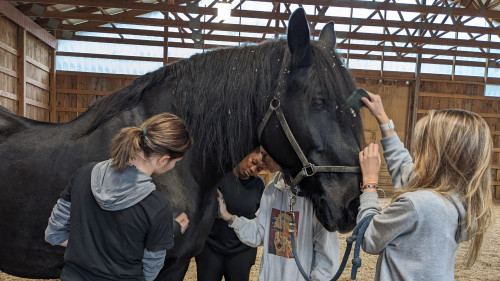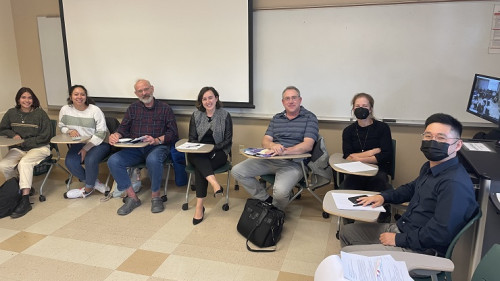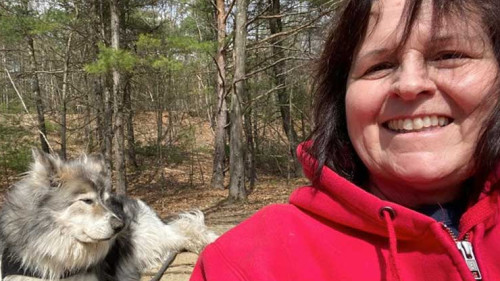
They are in need of food. Sometimes first aid. Maybe clean needles or other safe use supplies. But it’s simple human warmth and conversation they crave the most.
Jacob Schoff ’23 served the needs of the homeless population in Albany County during the fall and spring semesters for his senior year field placement in social work (he double majored in psychology). He worked eight-hour shifts for Joseph’s House & Shelter, a locally-based non-profit that provides emergency shelter and street outreach to hundreds of men, women and children each year.
Schoff rode shotgun in the Joseph’s House outreach van headed to neighborhoods populated by the most marginalized members of society. Once on the ground, he would connect directly with homeless people to deliver food, assess client needs, collect data for his independent study, and sometimes, just talk.
“One man told us, ‘I just want someone to talk to. I like you guys better than the food.’”
Schoff’s independent study focused on systemic homelessness. He compared the real experience and testimony of those experiencing unsheltered homelessness to what the current academic literature and public policy says about the issue.
“One of the bottom-line values of social work is to meet people and put a name to a face, and a face to the crisis of homelessness,” he said.
He learned that in most cases, people are not homeless because of drug use. He explained that they often end up using because of their homelessness, or an existing addiction is exacerbated by living on the streets. Mental illness, sometimes undiagnosed and almost always undertreated, is often a contributing factor to both drug use and homelessness.
One of the more controversial practices the outreach van performs is distributing safer drug use resources, known in the field as harm reduction supplies. Sterile needles, fentanyl testing strips, naloxone (Narcan) and more help prevent disease transmission, reduce the potential health risks associated with drug use, and can save lives.
“The benefits of delivering clean supplies are very real,” he said.
Even so, the work isn’t pretty. He has seen clients shoot up, overdose. He has spoken with women and men who sell their bodies for their next meal or to satisfy their dependency. He has seen the bruises, cuts and tracks on their careworn bodies. Still, the job comes with fulfillment. He described a man crying upon getting an apartment after a year on the streets. Schoff said seeing someone finally get a roof over his head makes it all worthwhile.
“I feel that I’ve got to help them, and it’s very rewarding.”
Schoff and his fellow social work students also took on advocacy efforts at the state Capitol this year, calling for more funding and higher quality of care related to mental health and public service agencies.
Elisa M. Martin, Ph.D., associate professor of social work, believes in Schoff’s ability to create change on individual and systemic levels.
“In his time with the social work program, Jacob has embodied social work values and knowledge, and applied them in his courses and field practice,” she said. “Jacob is not afraid to ask tough questions, reflect on his own beliefs, and use that to grow as a person and social work professional. He is excited to take on tough, systemic problems in his future career.”
Cynthia Bott, Ph.D., associate professor, agrees.
“Jacob is drawn to working with some of our most marginalized members of our society. I appreciate this about him and look forward to seeing where he lands.”
This fall Schoff is headed to the University at Albany for his master’s degree in social work. Educated in the classroom and in the field, he is looking to make a difference for others.

